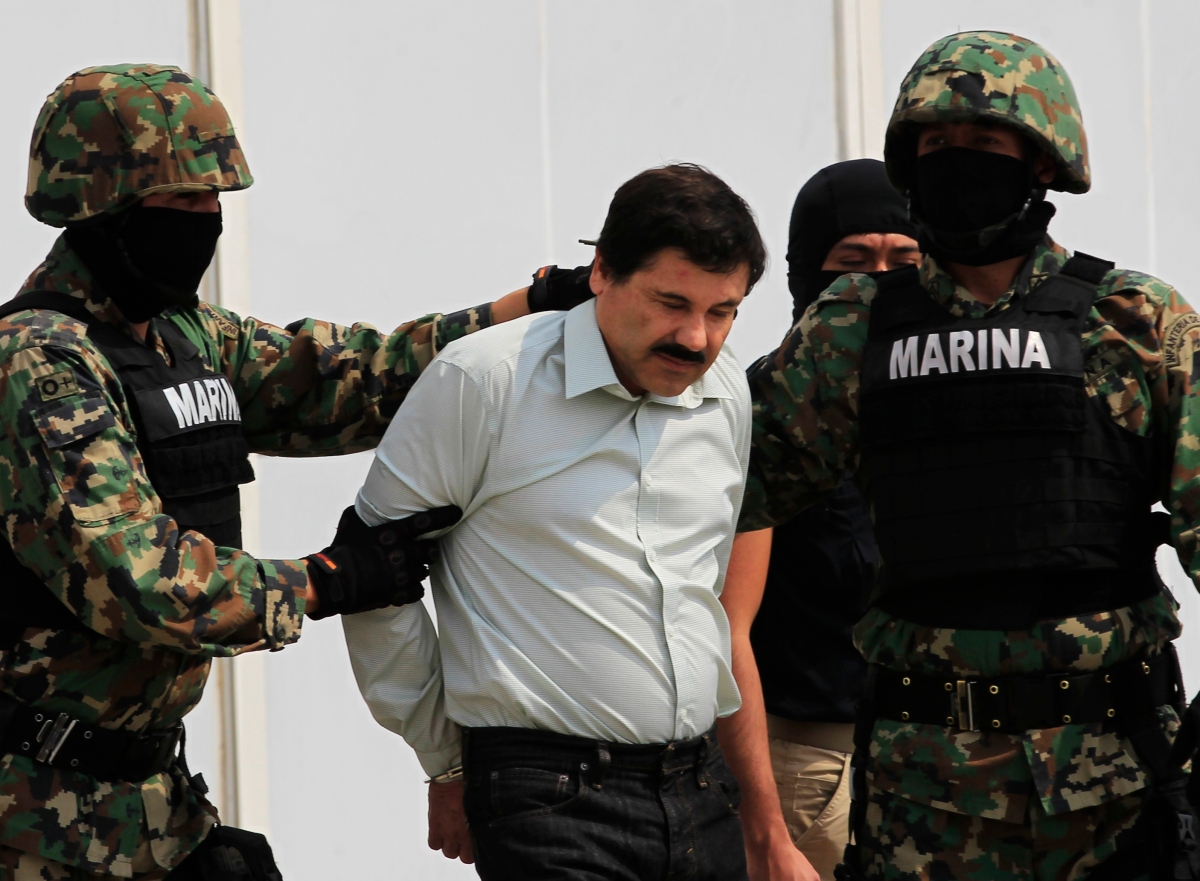Joaquín “El Chapo” Guzmán is a Mexican crime lord and leader of the infamous Sinaloa Cartel, the group responsible for supplying a large amount of drugs to the US market, and the wider world. El Chapo has twice escaped from Mexican “high-security” prisons, firstly in 2001 when he escaped via a laundry cart and most recently in July 2015, when he evaded Mexican authorities and fled his cell through a sophisticated underground tunnel. The power of the crime boss cannot be doubted, but his recent capture showed the world that El Chapo might not be as crafty as the world had previously believed.
6 months after his 2015 escape, as El Chapo lay low in the coastal city of Los Mochis in northern Sinaloa, he was captured by Mexican marines after extended surveillance and communication monitoring. The raid did not go entirely to plan, with El Chapo and his lieutenant escaping through a tunnel which led to the city’s sewage system. Thereafter, the cartel boss stole a car before being captured 20km away, in the town of Juan Jose Rios, after officers refused his attempts to bribe them. As the world awoke to the news of the capture, the most baffling part of this tale was still to be uncovered.
After the capture, it began circulating that El Chapo had met with US actor Sean Penn and Mexican star Kate del Castillo several months prior to his arrest, after Castillo had written to the boss several times requesting an interview. In what was a completely unprecedented move for the cartel boss, who was previously known as a shy figure who continually denied his links to drug trafficking, El Chapo told Penn he had a “fleet of submarines, airplanes, trucks and boats” and that he supplied “more heroin, methamphetamine, cocaine and marijuana than anybody else in the world”.
Thereafter, Mexican officials confirmed that communications between the Mexican drug lord and the American actor had played a key role in locating El Chapo. Even prior to his eventual capture, Mexican authorities were able to track Guzmán several times, with the gangster narrowly managing to escape amidst a hail of gunfire. American authorities played an instrumental role in the process, intercepting phone calls between the pair and providing their Mexican counterparts with enough information to allow them to raid 18 known Guzmán residences in the months prior to his January capture. After these shocking details emerged, questions must be raised as to why El Chapo chose to jeopardise his already unstable position as a free man by speaking with such high profile celebrities.
El Chapo does not lack fame; in spite of his role as a leading drug supplier on a global scale, he has gained celebrity status in Mexico, being seen as a type of twisted Robin Hood figure who came from poverty and rose to fame. Both he and his cartel have been one step ahead of US authorities for decades, in spite of their huge budget and sophisticated tracking mechanisms, further augmenting his hero-like status in the country. In addition, Forbes magazine placed El Chapo as number 67 in the “2013’s Most Powerful People” list, estimating that his organisation was operating at an annual turnover of $3 billion.
El Chapo is a household name and well-known figure across the world, he did not require any further exposure and certainly did not lack cash. Perhaps his desire was to leave a lasting legacy in a similar manner to Al Capone, as it appears Sean Penn and Kate del Castillo were interested in directing a film about the Mexican’s life. Yet it seems unthinkable that such a high-profile fugitive would both communicate with, and be interviewed by, Hollywood actors. Mexican cartels have a strictly tight-lipped policy and very rarely offer interviews, only doing so with covered faces and skewed voices. Even then, those who have been interviewed are generally low-ranking members, street dealers and smugglers, certainly not those in leadership positions.
Ultimately, El Chapo can blame only himself for his capture. At this point, it does not seem that Sean Penn tipped off authorities in any way, or that anyone else involved with the interview gave information to authorities. “Loose lips sink ships” is an age-old saying, which denotes criminals’ requirement to embrace a code of silence regarding their activities. But never has such a statement been so relevant than in relation to El Chapo’s capture, particularly in an era when communications tracking is highly sophisticated and advanced. It is now up to Mexican authorities to retain the prisoner at the third attempt, a feat which is made more difficult by the fact that El Chapo’s bribes far exceed the salaries of prison guards. But with the US keen to extradite the Mexican cartel boss, the future looks bleak for El Chapo Guzmán, who’s ageing eyes may never live to see the mountains of Sinaloa, or oversee the transportation of the huge amount of drugs consumed by Americans, again.


